CBD, or cannabidiol, comes from the cannabis plant. Unlike THC, it won’t get you “high.” It’s becoming well-known for possible health perks. Researchers are looking into how it may help with various health issues. It could also uplift mood and lessen pain.
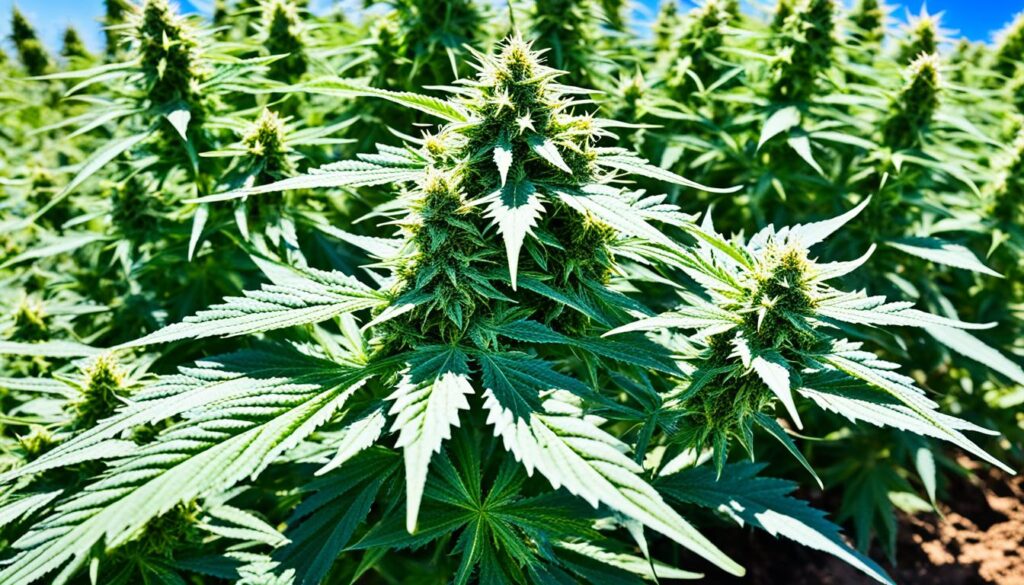
Key Takeaways:
- CBD is a compound found in the cannabis plant that is non-psychoactive and does not cause a “high”.
- CBD has potential health benefits and is being studied for its effects on managing certain health conditions, improving mood, and reducing pain.
- It is important to start with a low dosage and go slow when using CBD.
- Consult with a healthcare professional before using CBD, especially if you are taking any medications or have underlying health conditions.
- Choose high-quality CBD products from reputable brands that accurately label their products.
Understanding CBD: What It Is and How It Works
CBD, or cannabidiol, is a key compound in cannabis. It works with the body’s endocannabinoid system (ECS). This helps control things like sleep, mood, and hunger. The ECS keeps the body in balance, a state known as homeostasis.
CBD’s exact actions are not fully known. But it might activate or block cannabinoid receptors CB1 and CB2. These receptors are everywhere in the body, like the brain and immune system. CBD could affect how neurotransmitters are released, changing how our body works.
Besides CB1 and CB2 receptors, CBD might interact with serotonin and opioid receptors. Serotonin affects our mood. Opioid receptors help with pain control. So, CBD could help with mood and pain management.
Also, CBD could affect PPAR gamma receptors. These receptors help control gene expression and manage insulin, inflammation, and fat metabolism. This might mean CBD can help with diabetes, swelling, and metabolic issues.
The full workings of CBD are still under research. But knowing how it interacts with the ECS and different receptors sheds light on its possible benefits. More studies are happening to uncover all of CBD’s uses and effects.
The Potential Uses and Benefits of CBD
Research suggests that CBD could greatly help with mental and physical health. It appears promising in areas such as:
- Providing relief from pain associated with arthritis
- Reducing inflammation
- Managing seizure disorders like epilepsy
- Alleviating symptoms of cancer and its treatment
- Potentially improving sleep quality
- Lowering blood pressure
These findings provide hope for those looking for alternative health solutions. Though, CBD’s effects can vary by individual.
“CBD has potential in easing various mental and physical health issues.”
Dr. Jane Stevens, Neurologist

Preliminary research supports these benefits. Yet, we need more studies to confirm CBD’s efficacy. Consult a healthcare provider before using CBD, especially if taking other medications.
Begin with a small dose of CBD and adjust as needed. Everyone’s experience differs. Choosing the best CBD product and dose is a personal journey. “Finding the right CBD product and dosage is a process of trial and error. It’s important to start low and go slow.” Dr. Sarah Thompson, an Integrative Medicine Practitioner, advises.
Hopefully, future research will reveal more about CBD’s advantages. The following section examines possible side effects and risks of CBD. This aims to provide a thorough understanding, ensuring you make an informed choice about CBD for health.
Are There Any Side Effects or Risks?
CBD has potential health benefits, but being aware of side effects or risks is important. Here are some key concerns:
Nausea, irritability, and drowsiness: Some people might experience these side effects from CBD. They are usually mild and often go away as you keep using it.
Medication interactions: CBD could affect how some medicines work, especially those processed by the liver. If you’re on medication, talking to a healthcare professional before trying CBD is essential.
Liver issues and fertility: There’s research suggesting CBD could pose risks for those with liver problems or fertility issues. If this applies to you, getting medical advice is a good idea.
To lower risks, choose CBD products from trusted brands that follow strict quality control. Make sure the products clearly show the CBD amount and any potential allergens.
Consult with a Healthcare Professional
Thinking about trying CBD? It’s very important to talk with a healthcare professional first. This is especially true if you have health conditions or are on medication. They can offer advice tailored to you and help figure out if CBD is a good fit.
| Side Effects and Risks | Recommendations |
|---|---|
| Nausea, irritability, and drowsiness | Typically mild and subside with continued use. |
| Medication interactions | Consult with a healthcare professional before using CBD if taking medications. |
| Liver issues and fertility | Seek medical guidance if you have underlying liver conditions or are trying to conceive. |
| Source CBD products from reputable brands | Ensure accurate labeling and clear information about CBD content. |
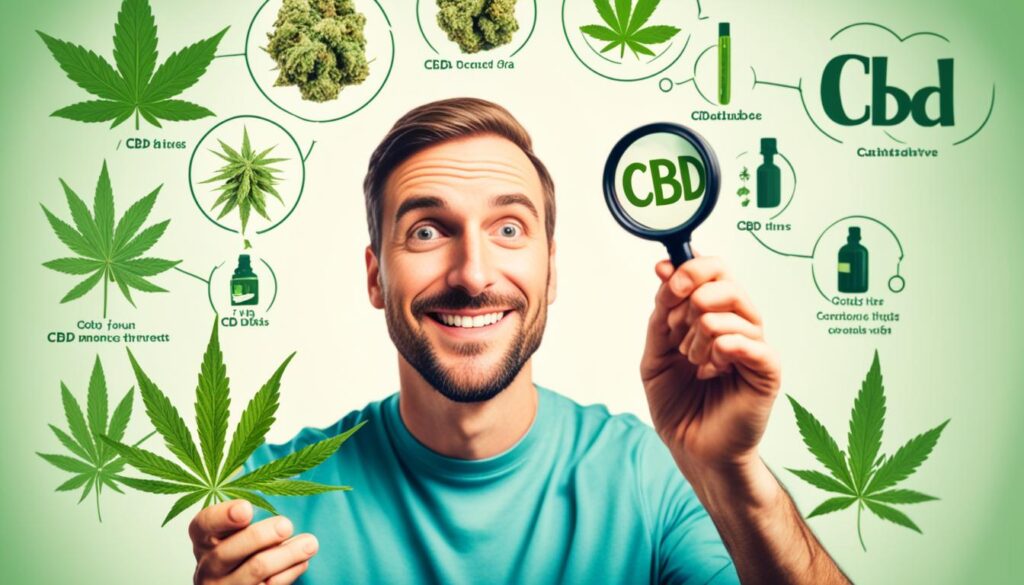
How to Use CBD: Different Forms and Administration Methods
There are many ways to use CBD. Understanding the options helps you find the best way to use it. Here’s a look at different forms and how to use them:
Oils and Tinctures
CBD oils and tinctures are popular. They are taken orally or under the tongue. You can control the dose with the droppers. Place a few drops under your tongue, or mix with a drink.
Topicals
CBD topicals are for your skin. They include creams, lotions, and more. Use them for relief on specific areas. Massage onto your skin until it’s absorbed.
Edibles
Edibles are a discreet way to take CBD. They come as gummies and treats. Start with a small dose and increase as needed.
Capsules
CBD capsules are easy to use. They are pre-measured and tasteless. Capsules are great for traveling or if you want something simple.
Vaping
Vaping CBD is quick but be careful. It involves inhaling vapor. Choose reputable brands and follow the instructions.
Each CBD form has its benefits and drawbacks. Your choice should match your lifestyle and needs. Try different forms to see what suits you best.
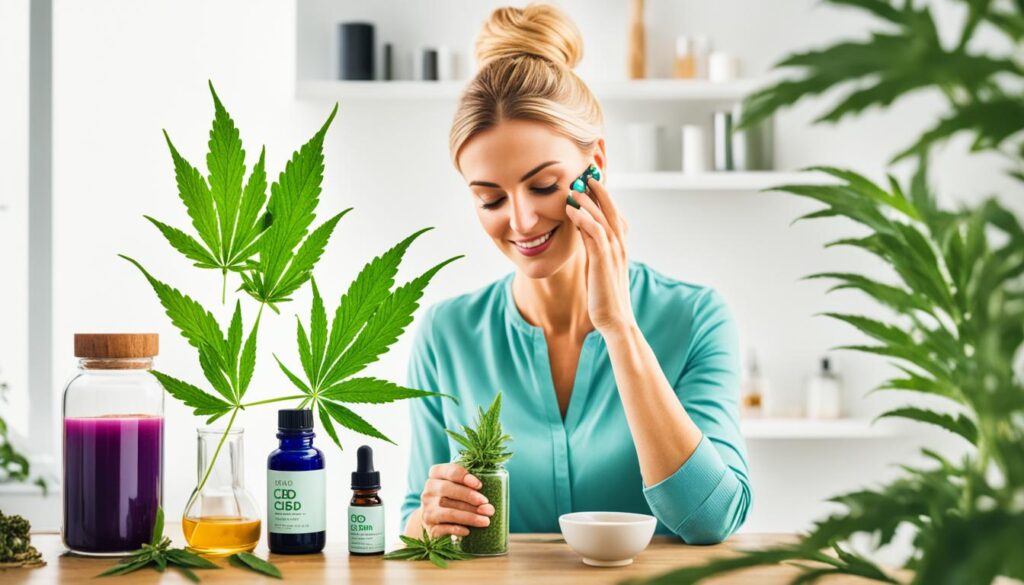
| Form | Administration Method | Pros | Cons |
|---|---|---|---|
| Oils and Tinctures | Oral or sublingual | Precise dosage control Fast-acting Versatile |
Distinct taste for some Requires holding under the tongue briefly |
| Topicals | Applied to the skin | Targeted relief No digestive system involvement |
Potential skin sensitivity Effects limited to the application area |
| Edibles | Oral consumption | Tasty and discreet Pre-dosed servings Easy to incorporate into daily routine |
Delayed onset Effects influenced by digestion |
| Capsules | Oral consumption | Convenient and tasteless Pre-measured doses Easy to incorporate into routine |
Delayed onset Effects influenced by digestion |
| Vaping | Inhalation | Rapid onset of effects High bioavailability |
Potential lung-related risks Not suitable for everyone |
Determining the Right CBD Dosage
Finding the right CBD dosage can be tough. It changes based on your body weight, how your body breaks down substances, and what you’re trying to fix with CBD. Everyone’s needs vary, so starting small and slowly upping the dose is key until you hit the sweet spot.
Even though research on CBD dosages exists, we still need more info for clear guidelines. But, you can follow some basic advice to find your ideal CBD dosage:
- Start Low and Go Slow: Kick off with the smallest suggested dose and gently increase it. This lets you see how your body reacts to CBD and discover the best amount for you.
- Listen to Your Body: Notice how you feel after taking CBD. If you run into any negative side effects like feeling sleepy or upset stomach, you may need to tweak your dosage.
- Consider the Condition: The seriousness of what you’re trying to tackle can affect how much CBD you should take. For example, deep-rooted pain might need more CBD than if you’re just aiming for overall health.
“Finding the right CBD dosage is a journey of trial and error. It’s crucial to stay patient and let your body adjust.”
It’s wise to stick to the recommended dose on the product at first, but talking to a healthcare professional is also vital. This is especially true if you’re already taking other medicines or dealing with health issues. They can offer advice tailored to you.
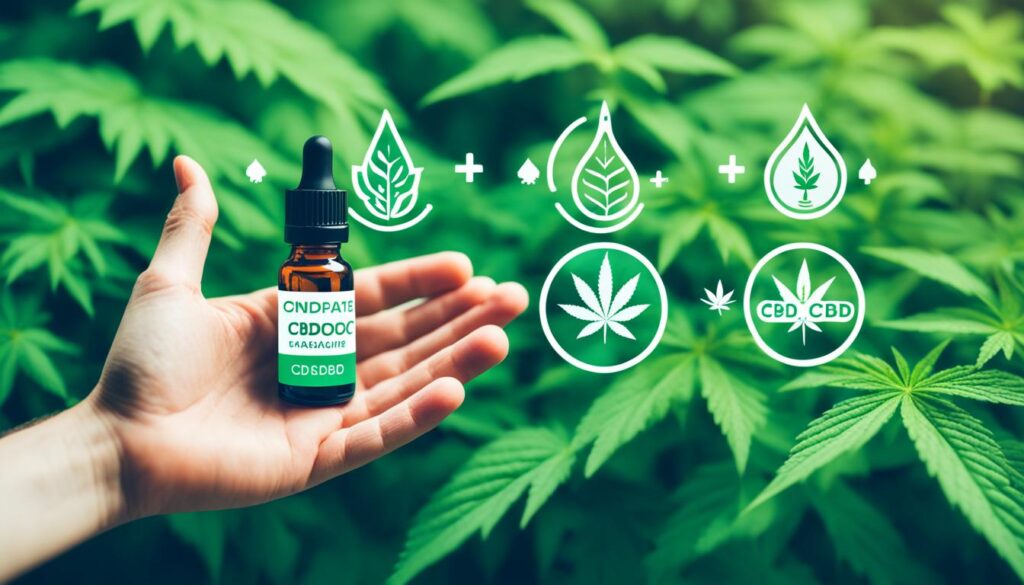
Keep in mind, CBD impacts everyone differently, so finding your dose might take some trying out. By beginning with a small amount, paying attention to how you react, and getting expert advice, you can find the CBD dosage that’s right for you.
Factors to Consider When Choosing CBD Products
When picking CBD products, many key factors need your attention. Making wise decisions helps pick top-notch, safe, and effective products. Taking the right factors into account is vital for a good choice.
Product Quality
Quality is key when choosing CBD items. Opt for products made from organic hemp. This means the hemp was grown without bad pesticides or chemicals. Also, seek out brands that share details about how they make their products. This shows they are open and responsible.
Lab Testing Results
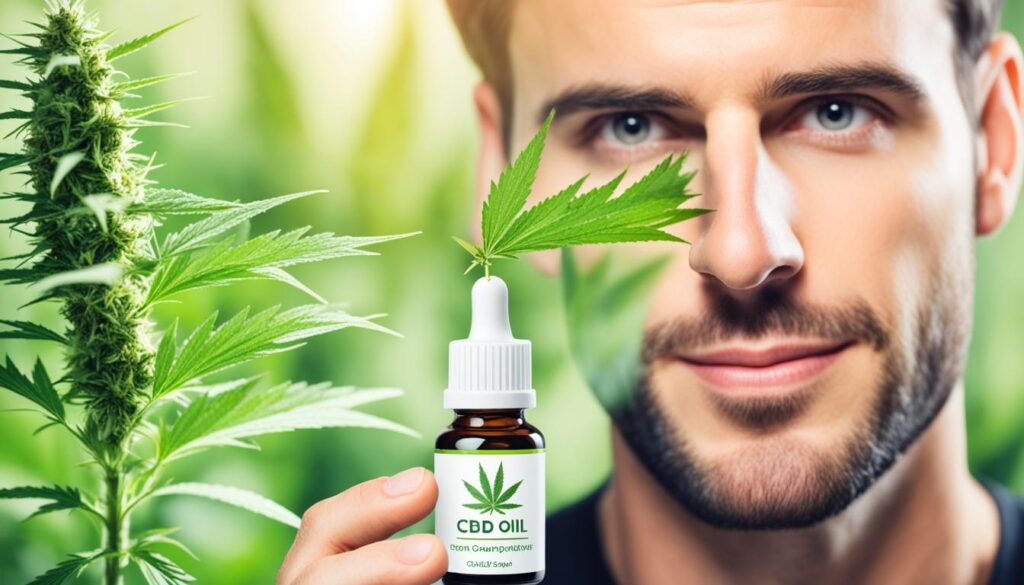
Lab tests are crucial for ensuring CBD product quality. Good companies have their products tested by outsiders. This checks for purity and strength. The lab reports tell you about CBD and THC levels, and any harmful substances. Choose brands that easily share these reports with you.
Accurate Labeling
Correct labeling is very important when picking CBD products. Labels should clearly show CBD level, how much to take, and other ingredients. This helps you make good choices and use the right amount of CBD.
Legal Considerations
Before buying CBD products, know the laws in your area. CBD’s legality differs from place to place. Make sure you’re up to date with your area’s rules. Also, buy products that meet your local legal requirements. Doing this keeps everything above board.
Looking at these factors will aid in making smart decisions on CBD products. Focus on quality, lab results, correct labeling, and obeying the law. This will lead to selecting products that are safe and fit your needs well.
The Pros and Cons of CBD Usage
Using CBD has its ups and downs. It’s key to grasp both before you start using it in your health routine. We will look at the good and the bad of CBD use.
Potential Benefits of CBD
CBD is thought to have many benefits for users. Here are some possible perks:
- Relief from anxiety and depression
- Management of chronic pain
- Improvement in sleep quality
- Potential anticancerous properties
- Assistance in managing side effects of cancer treatment
CBD is becoming popular for its impact on mental health, easing pain, and bettering sleep. Still, effects can differ from person to person. More study is needed to fully know its benefits.
Potential Risks and Side Effects of CBD
Though CBD is mostly seen as safe, there are some risks and side effects:
- Drowsiness: CBD might make you sleepy. Be careful if you need to stay alert.
- Drug interactions: CBD could mix badly with some medicines, like blood thinners. Always talk to a doctor if you’re on medication.
- Liver function: High doses of CBD might affect your liver. Watch your liver health and talk to a doctor if worried.
It’s important to balance the good against the bad when deciding on CBD. Talk to a healthcare provider, especially if you have health issues or take other drugs.

Is CBD Safe and FDA Approved?
CBD’s safety and FDA approval require careful consideration. While many people tolerate CBD well, its safety hasn’t been fully proven. This is because there isn’t enough research yet. As CBD becomes more popular, being cautious and making smart choices is key.
The FDA has okayed one CBD product for certain types of epilepsy. This shows CBD could have real medical value. But, understand that not all CBD products out there have this approval.
Many CBD items lack FDA approval, meaning they haven’t been thoroughly tested. This can lead to differences in their quality, strength, and safety.
If you’re thinking about trying CBD, look for trustworthy brands. Choose products tested by third parties. These tests give you details on purity, strength, and any harmful stuff. Also, read product labels to know what and how much you’re using.
Expert Tip: Talk to a healthcare pro before adding CBD to your life. They can look at your health, other meds, and any CBD risks. This is really important if you already have health issues or take other meds. They’ll help you make safe choices and avoid potential problems.
CBD has potential health benefits, but it’s not perfect for everyone. What helps one person might not help another. CBD works with your body in unique ways. So, its effects can change from one person to the next.
It’s key to know both the good and the limits of CBD. Stay well-informed, check things out with experts, and choose wisely. Doing this can help you enjoy CBD’s benefits while keeping your health first.
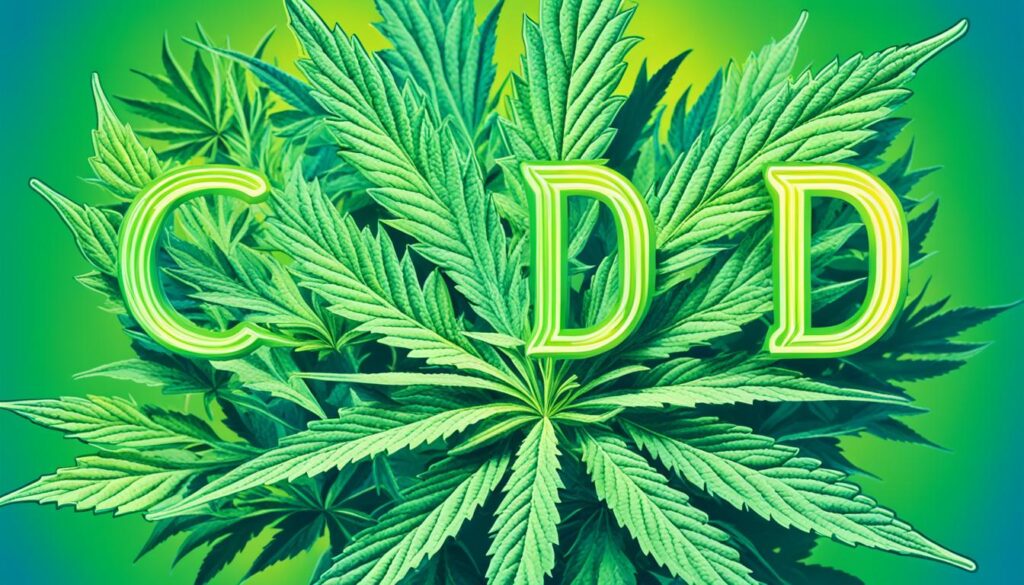
Conclusion
CBD is a non-psychoactive compound found in cannabis with potential health benefits. It might help with health issues, mood improvement, and pain reduction. There are different forms of CBD, so users can pick what suits them best.
Choosing quality CBD products and checking their legality is vital. Look for reputable brands and accurate labels for a safe experience. It’s also important to talk to a doctor to avoid risks and interactions.
Potential side effects of CBD should not be overlooked. Starting with a small dose is crucial to find what works for you. CBD is a natural option for relief, but getting personalized advice from a healthcare professional is always advised.